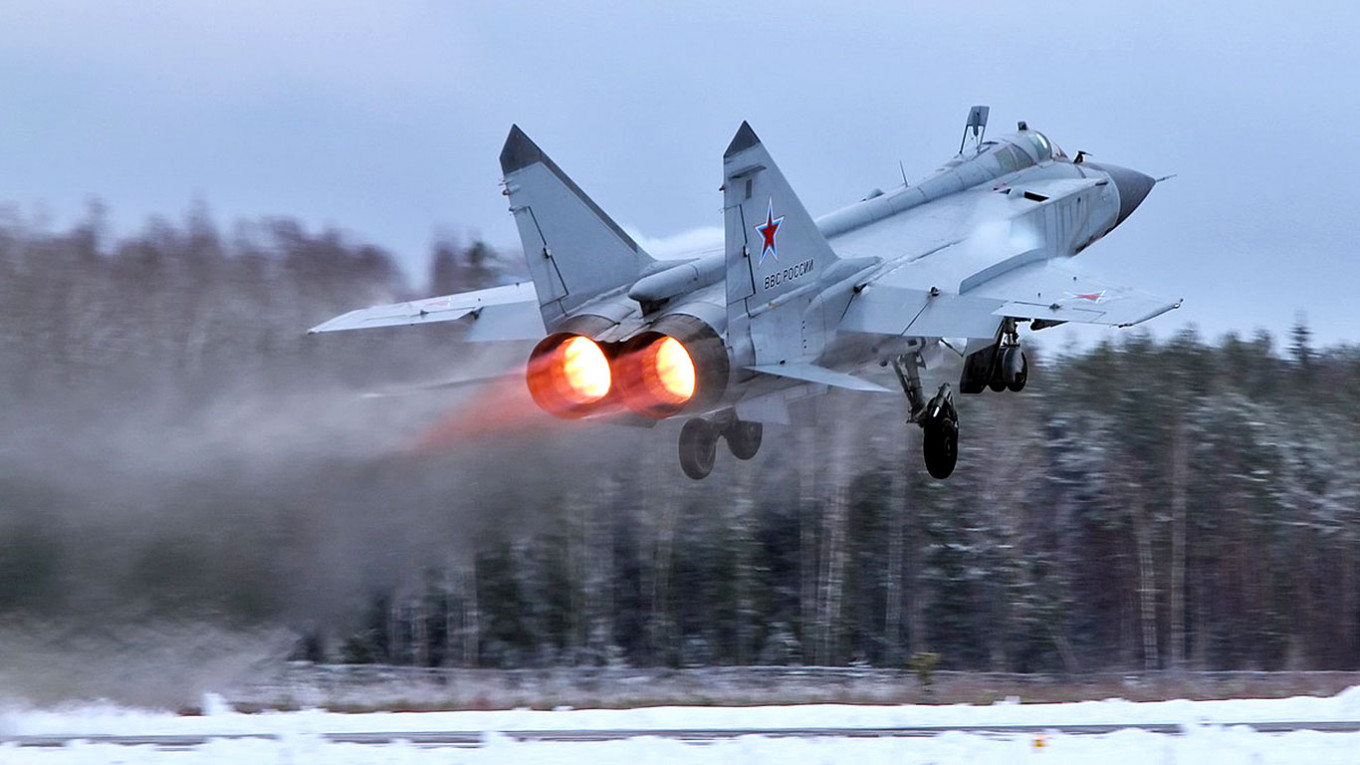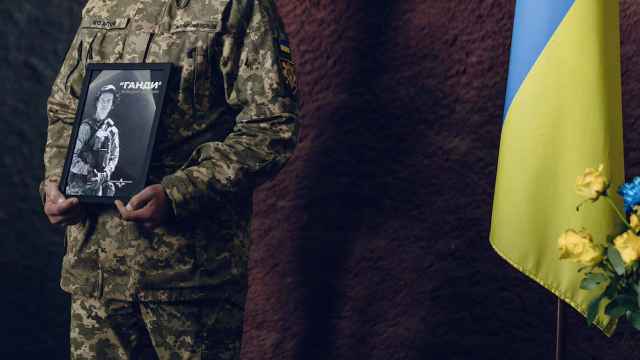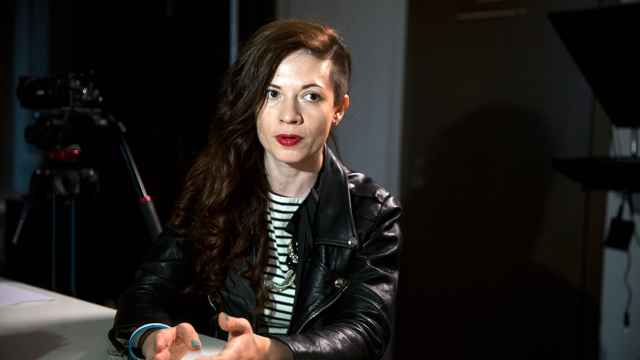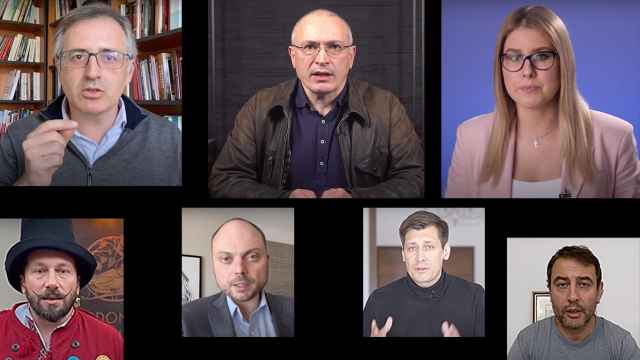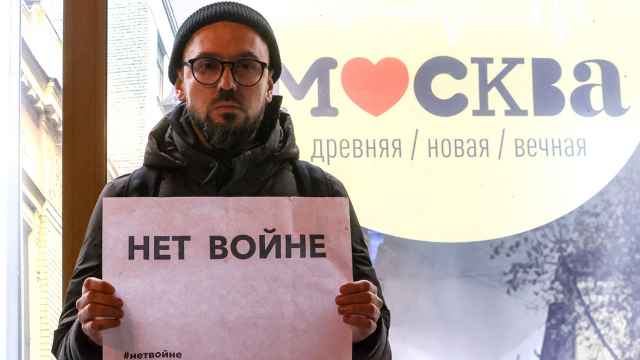Historian Andrey Zubov first realized that Russian President Vladimir Putin might be serious about invading Ukraine back in December, when the leader first presented his list of sweeping demands to the West.
They included legal guarantees that Ukraine would never join the NATO alliance, and the removal of all Western military forces from eastern Europe.
“It was absolutely clear that these demands would be rejected and that Putin would have to respond,” Zubov told The Moscow Times in an interview. “With a wind-up like that, he's got to follow through and hit something. And hitting something means war.”
Disagree though he might, like many living in Putin’s increasingly authoritarian Russia, Zubov felt powerless to change the course of events. A few days ago, he found a place to vent his frustration — a petition calling for Russia to back down drafted by veteran human rights campaigner and Soviet-era dissident Lev Ponomarev. He added his name, without hesitation.
The open letter — titled “If Only There Was No War” — is one of the only signs of public pushback inside Russia against the Kremlin’s military buildup around Ukraine, which Western intelligence agencies say has now surpassed 100,000 troops. It criticizes the “party of war” in the Kremlin, calls for peace, and urges that political attention be turned to Russia’s mounting domestic problems, like the rising cost of living.
Around 100 high-profile figures — Ponamarev and some fellow Soviet dissidents, actors, writers, singers, journalists and liberal politicians — signed the letter before it was published. Most are veteran opponents of Putin who have been consistent campaigners against Russia’s slide into repression under his 22-year tenure. Another 5,000 have since added their names via an open form.
Few expect anything to come of it — but still say they want their opposition on the record.
“I’m pretty skeptical about how the Kremlin will react to any kind of appeal from citizens,” said Andrey Nechaev, who was Russia’s Economy Minister during the turbulent early 1990s. “Still, it’s important to say what we think. It’s important for us, our colleagues, for Russian society in general to show that there’s an alternative position.”
Many of the signatories told The Moscow Times they are inspired by the Soviet dissidents of generations before, and believe in the important moral role of standing up to power, even if it is futile.
“In the most pragmatic sense, it will hardly change anything. But on a grander level — as much as the voice of dissidents can come to mean something in the future — it will have an impact,” said Veronika Dolina, a famous poet and songwriter.
‘Childish and naive’
The petition — which accuses the Kremlin of “deceiving and using people” and manipulating society to trigger an “immoral, irresponsible and criminal” war — calls on Putin and the Kremlin to back down.
But there are few signs this interpretation of events will sway the Russian public. The independent Levada Center pollster found that just 4% of Russians believe the Kremlin is responsible for escalating the situation near the Ukrainian border. Most blame the U.S. and NATO. Even among Russians who say they generally oppose Putin, just 8% think Moscow is to blame.
“There is flippancy and negligence in Russian society — the lack of ability to think independently is, unfortunately, almost absolute,” said songwriter and poet Dolina. “Yes, the people are childish and naive — but I believe they are absolutely against an actual war.”
As ineffective a tool as petition-signing may be, there are few options open to those who want to push back against a Kremlin which has completely dismantled any formal opposition and jailed hundreds of critics.
“Of course I am afraid — the same as any sane person who lives in Russia now and is watching what is happening. Any of us could become a victim of this repression. But this does not mean I will be silent,” said actress Tatiana Lazareva. “I will always support those who are expressing society’s interests, and not the authorities’. Probably petitions are the only safe way of expressing our will that we have left.”
If the Kremlin won’t listen, some of the letter’s backers want to send their message further afield.
“It’s clear it’ll never convince Putin of anything, but we have to tell the rest of the world — Russians, Ukrainians, Europeans, Americans, everybody — that ‘Russia’ and ‘Putin’ are very different things,” said Zubov, the historian, who lost his job as a professor at Moscow’s most elite university after he compared Russia’s 2014 annexation of Crimea with Nazi Germany’s Anschluss with Austria in 1938.
He added: “Putin says ‘Russia wants this’ or ‘Russia demands that’. No, it’s Putin and the Kremlin making demands — not Russia or Russians.”
“We want people in Ukraine to understand that Russians are not your enemy,” Leonid Gozman, another prominent 90s-era politician who signed the letter said in a social media post, calling on others to add their names to the list.
For actress Lazareva, the motivation for adding her name was closer to home.
“As a mother of three, I am trying to do something — anything — so that at least my children won’t turn to me later and ask: ‘Mum, why did you sit and stay silent?’”
A Message from The Moscow Times:
Dear readers,
We are facing unprecedented challenges. Russia's Prosecutor General's Office has designated The Moscow Times as an "undesirable" organization, criminalizing our work and putting our staff at risk of prosecution. This follows our earlier unjust labeling as a "foreign agent."
These actions are direct attempts to silence independent journalism in Russia. The authorities claim our work "discredits the decisions of the Russian leadership." We see things differently: we strive to provide accurate, unbiased reporting on Russia.
We, the journalists of The Moscow Times, refuse to be silenced. But to continue our work, we need your help.
Your support, no matter how small, makes a world of difference. If you can, please support us monthly starting from just $2. It's quick to set up, and every contribution makes a significant impact.
By supporting The Moscow Times, you're defending open, independent journalism in the face of repression. Thank you for standing with us.
Remind me later.



